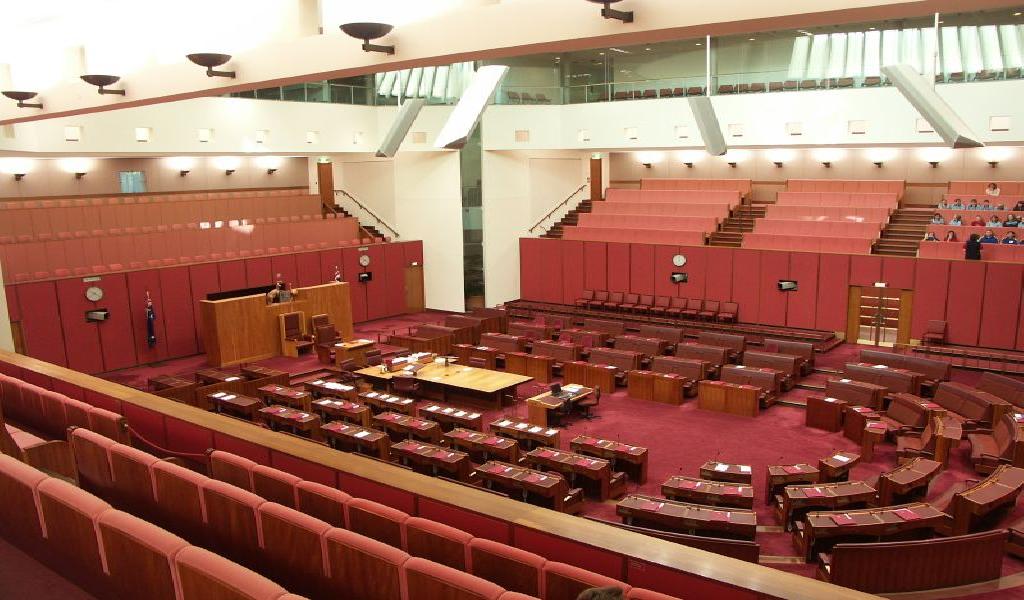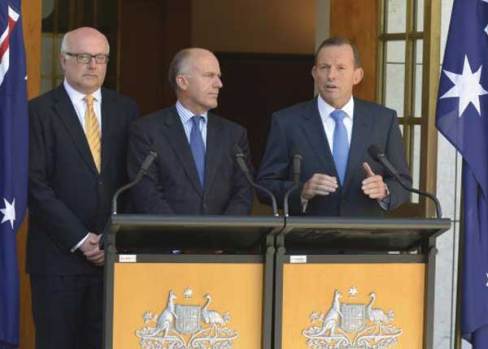Deep frustrations within the Abbott government over a bid to use the current round of enterprise bargaining negotiations to push workplace changes for the Australian Public Service have boiled over after Public Service Minister Senator Eric Abetz launched a furious attack on the Community and Public Sector Union (CPSU) for holding out for more money for its members.
After months of leaving it to senior bureaucrats to try and sell the government’s low-ball opening offer, the man appointed by the Prime Minister to knock the bureaucracy into line has accused unions of attempting to string out negotiations and misrepresent the government’s position for its own benefit.
In a significant escalation of hostilities between the Senator Abetz and the CPSU, the Sernator Abetz this week used a Dorothy Dixer question in Senate Question Time to effectively slam the door on future direct meetings with the union.
Asked if he intended meeting with the CPSU to discuss their concerns over enterprise bargaining — primarily over the “the government’s supposed stripping of rights” — Senator Abetz said he was “reluctant to acquiesce to a stunt meeting designed to further spurious claims about the government’s bargaining policy.”
“As the CPSU has previously been told, I am not the Commonwealth’s bargaining agent,” Senator Abetz said.
“I say once again to the CPSU: stop standing between your members, their jobs and sustainable wage increases.”
Realistically, the attack on the union from the Senate is unlikely to have much material impact aside from further depleting already low morale in many agencies, many of which are now pushing through painful redundancies.
In the event that negotiations break down completely, the most likely course is that disputes will wind-up in the industrial courts to be settled — with the government unlikely to realise much of its ambitious agenda unless employment laws are changed through legisislation.
So far, most of the offers put forward by agencies and departments to staff under the Australian Public Service Commission’s strict new bargaining framework involve either some kind of dilution of conditions or entitlements in combination with below inflation pay rises.
The result of the hardline stand is that most public servants now have nothing or below nothing to lose in terms of money and perks by holding out and not agreeing to a lesser deal.
However a sleeper issue in the workplace debate is what appears to be growing antipathy among senior bureaucrats towards an overly blunt and dogmatic ‘productivity agenda’ which usually comes in the form of extending working hours.
Informed sources have suggested that the so-called productivity push is, in reality, a short-sighted cost cut because it will not actually increase the output of employee per hour; rather it increases the number of hours worked and bring down the unit cost of labour.
One source suggested that adherence to such dogma could put real productivity increases at risk, especially if an ‘older-style’ labour dispute broke out where unions and the government both failed to take into account technology-enabled reforms which have already yielded huge benefits to commercial organisations.
Another APS source suggested that despite a more “digitally literate” wave of younger public service managers and staff emerging, who were innately more innovative, an “ossified mindset” still prevailed among many ministers, their staff and some APS senior management.
Meanwhile, the long slog of traditional industrial negotiation is continuing.
“Enterprise bargaining in the Australian Public Service is progressing at an agency level, as required by the Australian government public sector workplace bargaining policy. So far, 65 agencies, covering about 76 per cent of the workforce, have commenced enterprise bargaining,” Senator Abetz said.
For its part, the CPSU is making as much mileage as possible from Senator Abetz’s self-styled image as an industrial hard man.
“When the Government’s policy is so frighteningly aggressive, the CPSU doesn’t need to scaremonger,” said CPSU National Secretary Nadine Flood.
“When public sector workers look at the long list of rights that the Government has in its sights, they are genuinely scared.”
Ms Flood cautioned many public servants were on “average wages” and the inflation rate inflation was sitting at 3 per cent a year.
“Does the Minister really think it’s reasonable for public servants to give up their rights to get a close-to-zero per cent pay increase?” she asked.
Even if the door is shut, the union is still gunning for a meeting.
“
[Senator Abetz’s] refusal to discuss these issues with the CPSU is extraordinary given he is the Minister responsible for public sector bargaining. With the pay, conditions and rights of 160,000 staff up in the air, surely the Minister should be willing to meet the union to work out a better way forward,” Ms Flood said.
Comment below to have your say on this story.
If you have a news story or tip-off, get in touch at editorial@governmentnews.com.au.
Sign up to the Government News newsletter




Senator Abetz says :
“I say once again to the CPSU: stop standing between your members, their jobs and sustainable wage increases.”
LMFAO – 1.15% to1.5% substantial….LOL
I am one of the public servants subject to these negotiations and it is a real kick in the guts to myself and my colleagues. We work hard to deliver vital service to the Australian public, often under hostile conditions. We deserve to be recognised for our repeated willingness to come back day after day. We take pride in knowing we serve our communities and these offers are effectively saying to public servants Australia wide that our government does not appreciate or understand the work we do. We’re not asking for extravagance, just a fair and reasonable deal that keeps our rights right where they are as we have already provided productivity gains and given up enough in the past to get to where we are now. I don’t see our pollies taking 0% pay rises and forgoing their generous super and travel benefits.